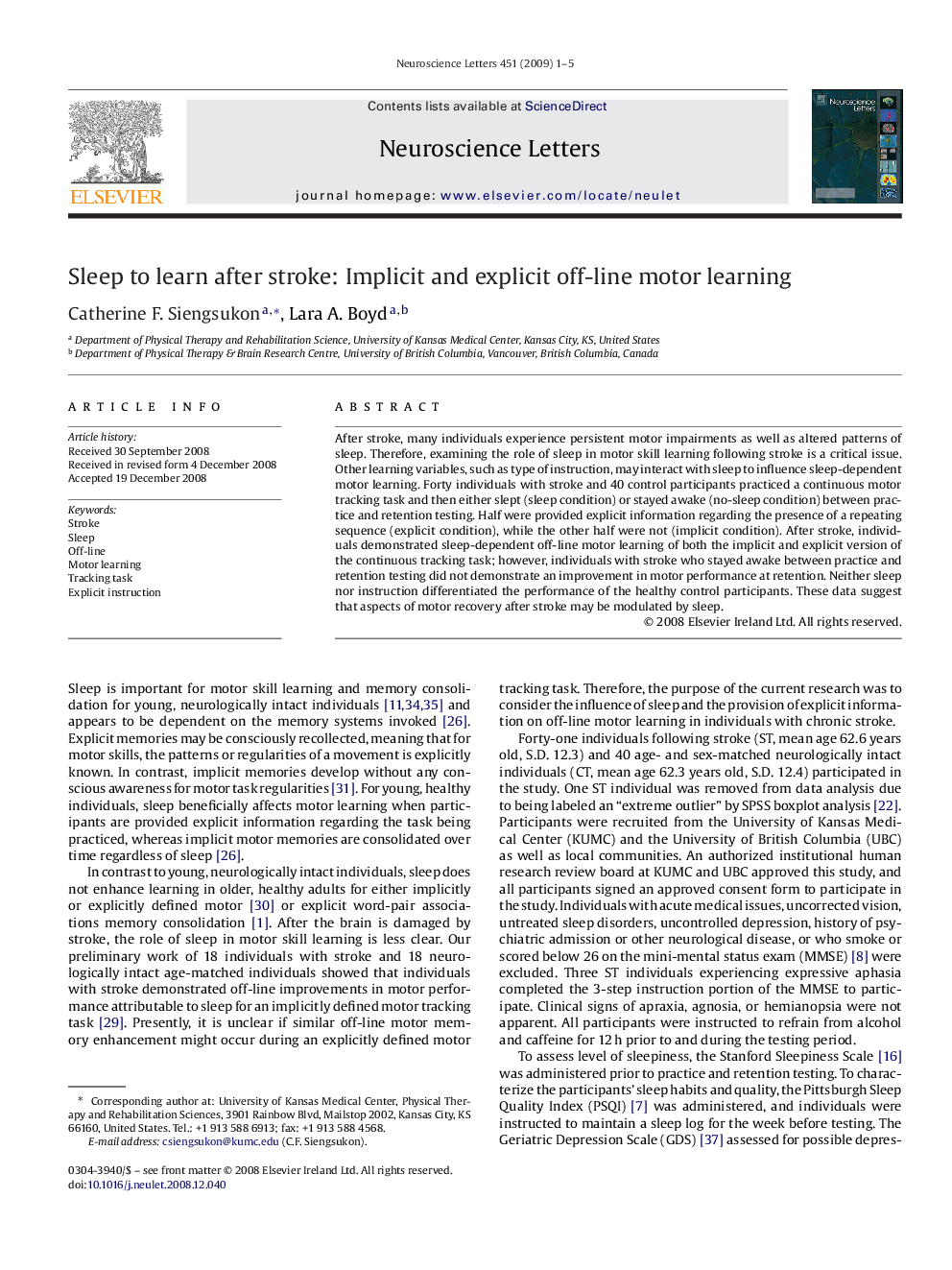| Article ID | Journal | Published Year | Pages | File Type |
|---|---|---|---|---|
| 4347809 | Neuroscience Letters | 2009 | 5 Pages |
Abstract
After stroke, many individuals experience persistent motor impairments as well as altered patterns of sleep. Therefore, examining the role of sleep in motor skill learning following stroke is a critical issue. Other learning variables, such as type of instruction, may interact with sleep to influence sleep-dependent motor learning. Forty individuals with stroke and 40 control participants practiced a continuous motor tracking task and then either slept (sleep condition) or stayed awake (no-sleep condition) between practice and retention testing. Half were provided explicit information regarding the presence of a repeating sequence (explicit condition), while the other half were not (implicit condition). After stroke, individuals demonstrated sleep-dependent off-line motor learning of both the implicit and explicit version of the continuous tracking task; however, individuals with stroke who stayed awake between practice and retention testing did not demonstrate an improvement in motor performance at retention. Neither sleep nor instruction differentiated the performance of the healthy control participants. These data suggest that aspects of motor recovery after stroke may be modulated by sleep.
Related Topics
Life Sciences
Neuroscience
Neuroscience (General)
Authors
Catherine F. Siengsukon, Lara A. Boyd,
